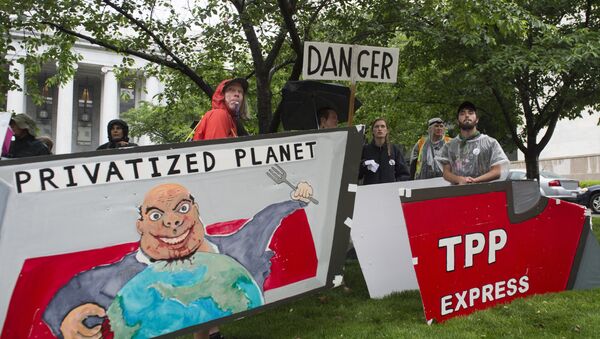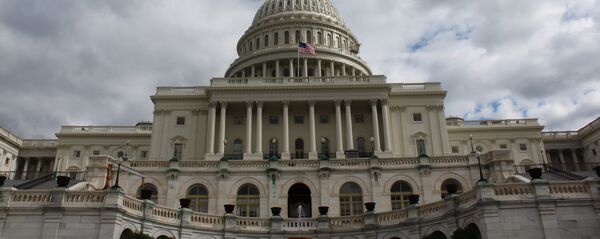"In short, then, the TPP has been presented and criticized as if it were an ordinary trade deal. It's not. The treaty boasts strategic consequences that make it well worth passing," the expert stressed.
"If the TPP can change the trajectory of American power relative to China's, it may be the single most important factor in whether the United States retains its "indispensable" role in the 21st Century," he elaborated.
Mirski argues that without the TPP the United States would eventually cede its dominant political and economic positions in the region to its "primary geopolitical rival" — China.
"In order to preserve American primacy in the face of a rising China, American strategists seem forced to choose between two options that are both extremely unpalatable: containment and integration."
However, the TPP "offers a third option:… the United States should build up its own strength (as well as the strength of its Asian allies) in order to maintain a balance of power in the Asia-Pacific that is favorable to continued American primacy," the expert revealed.
Furthermore, the expert insisted that "China and Hong Kong would lose out $47.5 billion [by 2025] from being excluded from the [TPP] agreement, since it would divert trade flows away from them and toward TPP countries," while Washington will enjoy "a net $77.5 billion increase" in income.
The expert criticized those who hesitate to grasp such an opportunity, stressing that it is "shocking" that the deal "almost met its end" in the US Congress.
According to Mirski, the agreement's antagonists still cannot realize Washington's bright geopolitical prospects related to the widely discussed deal.
"[C]ongressional Democrats, environmental organizations, and labor unions have closed ranks to present a united front against the TPP. They argue that it will line the pockets of corporations while draining much-needed jobs from the American economy," he noted.
"The multinational corporations… embrace an approach that allows them to move factories and jobs from country to country in order to lower wages and avoid labor, environmental, and human-rights regulations," US political blogger John Nichols wrote a month ago, stressing that together with the American Legislative Exchange Council they are now pushing ahead the TPP.
However, it seems that Washington's political establishment is too preoccupied with its rivalry with China to take into consideration its burning domestic issues, such as the economic well-being of its middle class, workers and farmers.



![The Australian parliament has issued a harsh verdict on the Trans Pacific Partnership trade deal currently being negotiated, calling it an attack [on] internet freedoms and seriously lacking in oversight, in a report released Monday. The Australian parliament has issued a harsh verdict on the Trans Pacific Partnership trade deal currently being negotiated, calling it an attack [on] internet freedoms and seriously lacking in oversight, in a report released Monday. - Sputnik International](https://cdn1.img.sputnikglobe.com/img/102401/39/1024013919_0:444:3893:2156_600x0_80_0_0_791f94a8b3137bd8d4a3da76d991c0eb.jpg)


